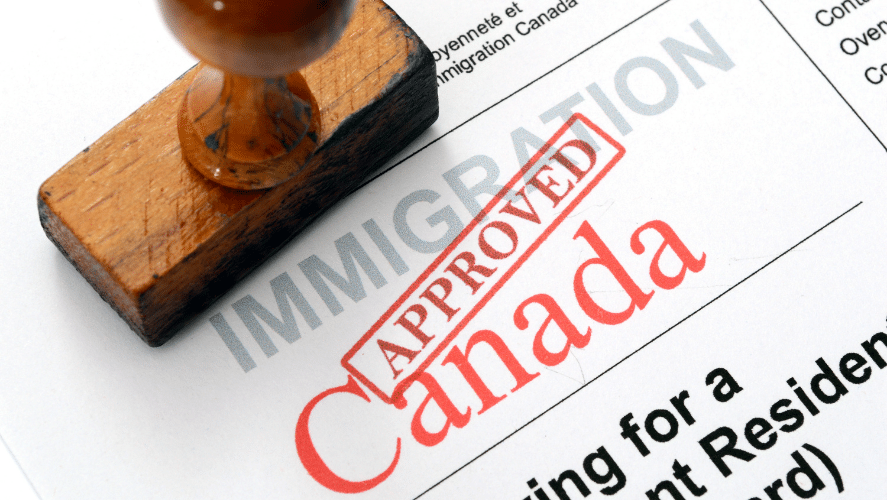Understanding Canadian Relocation Tax Laws: Part Two

Part two of our series explores non-reimbursable relocation expenses that may qualify as tax-deductible for Canadian taxpayers.
Your assignment has taken you to be the picturesque Great White North. You’re raring to explore your new territory, but a Mt. Logan’s worth of relocation expense receipts calls you back inside. You’ve tackled your reimbursable costs, but how do you approach non-reimbursable ones? Does the fact that these expenses are non-reimbursable mean that your CADs will be on the line come tax season?
You don’t necessarily have to assume a financial loss on non-reimbursable expenses if you’re a Canadian taxpayer, as these costs may be eligible for deduction.
For more information on non-taxable reimbursements, the requirements for tax deductibility, and the differences between “deemed” or “factual” residents, check out part one of our Canadian relocation tax law series.
What non-reimbursable transactions are deductible?
If you’ve accumulated relocation expenses that aren’t considered eligible for reimbursement, don’t chalk them up to a loss. In Canada, some non-reimbursable costs may still be admissible for deduction.
When relocating to or within Canada for your new assignment, the following non-reimbursable expenses may qualify as tax-deductible:
- Traveling expenses for the taxpayer and household members, including reasonable amounts for lodging, vehicle expenses, and meals.
- Transportation and storage of household goods.
- Temporary lodging and meals near either the old or new residence.
- Lease cancellation for the old residence.
- Selling costs for the old residence, unless the sale was delayed for investment purposes or until the real estate market improved.
- Legal fees and land transfer taxes associated with the purchase of a new residence provided the old residence is sold as a result of the move.
- Mortgage interest, property taxes, insurance premiums, and costs associated with heat and utilities on a vacant old residence. (These costs must occur during a period where reasonable efforts were made to sell the home and are limited up to $5,000).
- Certain incidental costs related to the move including: changing the address on legal documents, replacing driver’s licenses and automobile permits, and utility hook-ups and disconnections.
Be mindful that overall deductions are limited to income earned in the new position at the new location during the year of your relocation. If you’re a student or moving for school, deductions are confined to scholarships and grants received during the year you moved. However, any excess deductions can be carried forward for a possible deduction in the year directly following the move.
What are the differences between reimbursed and non-reimbursed expenses for “factual” or “deemed residents”?
As explained in our previous Canadian tax relocation laws post, some Canadian transferees will be categorized as “factual” or “deemed residents.” These designations alter a taxpayer’s liabilities, including the deductibility standing of reimbursable and non-reimbursable expenses.
The most significant distinctions between reimbursement statuses for “factual” or deemed residents” are:
- House hunting (non-taxable if reimbursed; non-deductible if not reimbursed).
- Temporary living (non-taxable if reimbursed; deductible only up to 15 days if not reimbursed).
- Non-accountable miscellaneous allowance (non-taxable up to $650 if reimbursed; non-deductible if not reimbursed; non-taxable up to two weeks salary if in Quebec).
- Loss on sale (deductible up to $15,000 and 50% deductible beyond that if reimbursed, non-deductible if not reimbursed).
Quebecian pension and insurance rates
There are a few key distinctions between Canada’s territorial and provincial tax insurance rates when considering insurance and pension plans. Outside of Quebec, the tax year 2021 Canadian Employment Insurance (CEI) rate is 1.58% between $0 to $56,300, and the Canadian Pension Plan (CPP) rate is 5.45% between $3.5k to $58,100.
In Quebec, the tax year 2021 Quebec Pension Plan (QPP) and Canadian Employment Insurance (CEI) rate is 5.90%. The Quebec Parental Insurance Plan (QPIP) rate is 0.494% for the employee for the first $83,500, while the employer rate is 0.692%.
Tax Laws, eh?
Whether your assignment has you venturing to our neighbor in the North or anywhere worldwide, staying abreast of the varying local tax legislation is vital for any mobility program. Ineo provides complete global mobility tax services, including international and multi-country tax preparation and guidance for companies and their employees. Contact us today to learn how we can support your program’s unique needs.
Global Mobility Resources
Learn more about what’s going on at Ineo and insights into the complex world of global mobility from the industry’s top thought leaders and innovators.
Request A Demo
Whether you are new to the world of global mobility or you’ve been in the business for a while, Ineo is here to assist you.
The best way to learn how Ineo’s global mobility software can help your company revolutionize your global mobility program and support your business strategy is to see it in a demo.
Fill out this form to get started today.
Get Started

